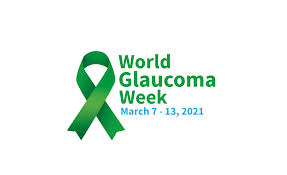
Expert Charges Healthcare Providers to Champion Early Detection against Glaucoma
Worried about the increase in glaucoma cases globally, Founder, Brookfield Centre for Lifestyle Medicine and President, Society of Lifestyle Medicine of Nigeria, Dr Ifeoma Monye has charged physicians, healthcare providers and advocates of lifestyle medicine to champion prevention and early detection as the most sustainable remedy against glaucoma.
The expert made this submission in a media release issued Friday to mark the World Glaucoma week from March 7 to 13, which is on the theme, ‘The World is Bright, Save Your Sight!’
With 2020 statistic showing that about 80 million people have glaucoma worldwide, and this number is expected to increase to over 111 million by 2040, Dr Monye emphasised the need for Nigerians to go for regular eye test to save their sights.
The Brookfield founder described glaucoma as a common eye condition where the optic nerve, which is the nerve that connects the eye to the brain, becomes damaged; explaining that “This nerve transmits signals from your eyes to the brain, to interpret the images that we see.”
Glaucoma, she added, is usually caused by increased pressure in the eye although some people with glaucoma have normal pressures in the eyes (Normal tension glaucoma).
Dr Monye warned that glaucoma is a leading cause of irreversible vision loss, as she lament that Africa has the highest prevalence of blindness worldwide and glaucoma accounts for 15 per cent of blindness in Africa.
Now, the medical expert noted that while a good number of people with glaucoma may have no symptoms at all, these people are not even aware they have glaucoma. “This is why it is often called the “Sneak thief of vision”.
Whereas for those who have symptoms, Dr Monye hinted that the first sign of glaucoma may be loss of peripheral or side vision. “Seeing a rainbow of lights around lights, being unusually sensitive to light can all be signs of glaucoma,” she added.
And because there are other reasons one’s eyes may be unusually sensitive to light; therefore, a” proper diagnosis must be made should you have any of these symptoms. See your doctor.”
Accordingly, the doctor stressed the damage caused by glaucoma, which tends to be permanent, while harping that the emphasis must be on prevention, early detection and treatment.
Other suggestions include regular checkups, which she pointed out, help identify glaucoma at its earliest stage and treatment to lower the pressure in the eye begins at once with eye drops and surgery may be considered too.
She cautioned: “Anyone can develop glaucoma. However, chances of getting it is increased with certain risk factors. These include a family history of glaucoma age above 40 years, being black, Asian or Hispanic, sickle cell anaemia.”
Dr Monye listed certain lifestyle practices and conditions that could implicate the situation. They include obesity and overweight, chronic stress, smoking, diabetes, sleep problems, and uncontrolled hypertension.
“Several recent studies provide supportive evidence for the use of lifestyle interventions as part of the management of glaucoma,” she outlined.
Some benefit has been reported with prescribed aerobic exercise, improved sleep, sleep position, eating lots of dark green leafy vegetables, fresh oranges and peaches as well as beta-carotene and other retinol-enhancing nutrients.
In glaucoma, Dr Monye said the popular saying, “Prevention is better than cure” could not be truer. We join the World Glaucoma Association (WGA) to spread the message that with regular testing we can indeed save our sight. If left undiagnosed, it can progress to blindness. Book your eye test today”.